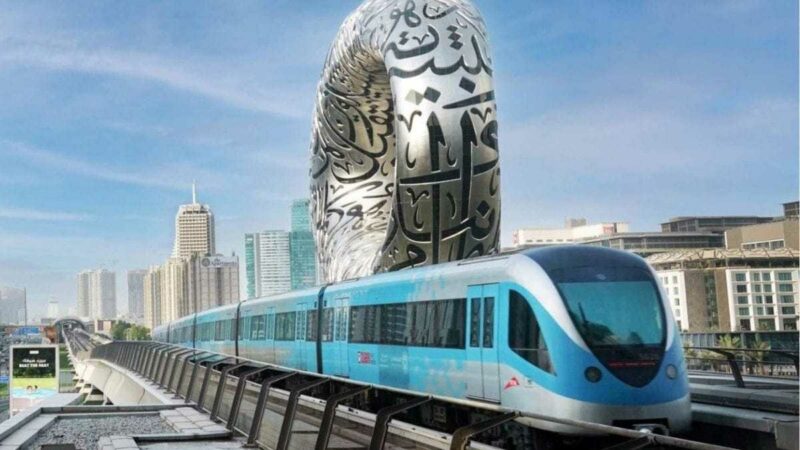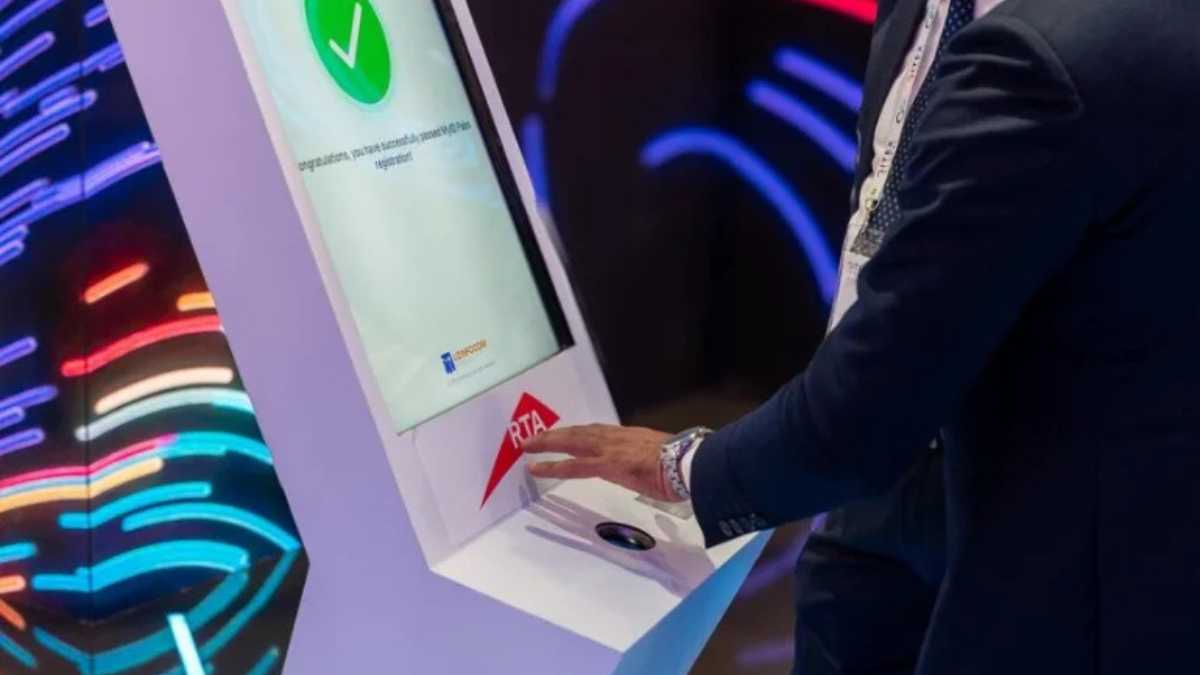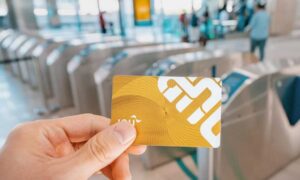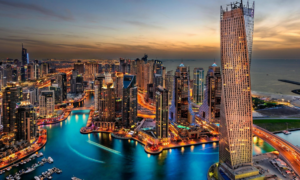Dubai is on the cusp of introducing a groundbreaking palm scanning technology that will completely transform how commuters travel on the Dubai Metro. This innovative system will eliminate the need for traditional Nol cards, allowing commuters to simply scan their palm at Metro stations. Expected to be rolled out by 2026, this technology is currently undergoing rigorous testing to ensure a smooth and secure user experience.
The Future of Public Transport in Dubai: A Cashless, Contactless Experience
Dubai has long been at the forefront of adopting cutting-edge technologies, and this latest development is no exception. The Roads and Transport Authority (RTA) is working tirelessly to make the metro system more efficient, secure, and user-friendly. By transitioning to an account-based ticketing system, the RTA aims to streamline the commuting process.
According to Salah Almarzooqi, director of the Automated Collection System at RTA, the technology is still in its testing phase at the Centre of Excellence and will take at least a year and a half of testing before a full rollout is considered. He emphasized that the system will undergo extensive quality checks and assurances before it is made available to the public.
Once launched, commuters will be able to link their palm to their Nol card, which will allow them to seamlessly access public transport services. This contactless solution is expected to provide commuters with a faster, more secure, and more efficient way to pay for their rides, thereby eliminating the need for physical cards or mobile apps.
How Does Palm Scanning Work?
The palm scanning technology leverages biometric identification, specifically the unique pattern of veins within an individual’s hand. This method is highly secure and accurate, making it nearly impossible for unauthorized access. During the Gitex Global Technology Exhibition, the RTA demonstrated how the palm scanning system will operate. Commuters will be able to link their Nol card to their biometric data by visiting designated kiosks, after which they can use their palm to access any Metro station.
Once a user scans their palm at the smart gates, the fare for their journey will be automatically deducted from the linked Nol card. The same technology can be extended to other forms of public transport, including buses and trams, making it a versatile and unified solution for Dubai’s commuters.
Seamless Payments Beyond Public Transport
What makes this system even more revolutionary is that it won’t just be limited to public transport. The RTA is also working on extending the palm scanning payment method to various commercial services across Dubai. Currently, Nol cards are accepted at several retail stores, cafes, and other vendors. In the future, commuters will also be able to pay for goods and services by scanning their palm at any participating vendor.
Almarzooqi revealed that once the concept is fully finalized and approved, palm payments could be accepted at shops, restaurants, and other points of sale throughout Dubai. This means that residents and tourists alike could use this feature not just for commuting, but also for making purchases in retail outlets, dining, and entertainment experiences.

Tourists and Palm Payments: A New Way to Explore Dubai
In addition to revolutionizing how residents commute, the RTA has also made strides in improving the experience for tourists. In June, the RTA introduced a special Nol card for tourists, which has quickly gained popularity. Tourists can purchase this card at Dubai International Airport for AED 150, giving them unlimited access to the Dubai Metro, trams, and buses. In addition to convenient transportation, the card also offers discounts at over 800 establishments, including desert safaris, hotels, and popular tourist attractions.
With the introduction of palm scanning technology, it is expected that tourists will also have the option to link their Nol cards to their palms, making it even easier to navigate the city. Whether they are commuting to iconic landmarks or taking advantage of exclusive discounts, the new technology promises a seamless experience for visitors.
Student Nol Cards: A Versatile, Multi-Purpose Tool
Dubai has always prioritized innovation in education, and the RTA’s student Nol card is a testament to this. Introduced in February, this card offers exclusive benefits to school and university students. It not only serves as a transport card but also doubles as an international student ID, providing access to thousands of services and discounts worldwide. Students can use the card to get discounts with popular vendors such as Emirates, Booking.com, Qatar Airways, YouTube, Spotify, and Noon.
This multipurpose card is designed to cater to the specific needs of students, allowing them to save money on transport, entertainment, and even daily essentials. With the upcoming palm scanning system, students may soon be able to link their Nol cards to their palms, making it even easier to access these benefits.
Palm Scanning in a Broader Context: ICP Collaboration
The Federal Authority for Identity, Citizenship, Customs, and Port Security (ICP) is also playing a crucial role in the development of palm scanning technology in the UAE. In collaboration with the Central Bank of the UAE, the ICP is working on a system that will provide faster and more seamless services across both the public and private sectors. This technology is expected to link individual biometric data, including palm prints, to various entities across the UAE, making it easier for citizens and residents to access a wide range of services.
The integration of palm scanning technology into Dubai’s transportation infrastructure is just the beginning. As this technology evolves, it could become a common method of payment and identification across the entire country.
A Glimpse into Dubai’s High-Tech Future
The introduction of palm scanning technology for public transport is a monumental step in Dubai’s vision to become a global hub for innovation and smart city solutions. By integrating biometric technology with public transportation, the RTA is setting a precedent for other cities around the world. Dubai’s commitment to improving the everyday experience of its residents and tourists through the use of state-of-the-art technology is truly commendable.
The account-based ticketing system combined with palm scanning will significantly reduce the need for physical payment methods, making public transport in Dubai a more efficient, secure, and enjoyable experience. As this system is expected to be fully operational by 2026, commuters and tourists alike can look forward to a future where biometric technology simplifies their daily lives.



























